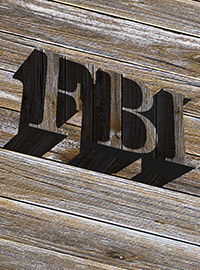| What Explains the FBI's Deep Faith In Trump Dossier Author? |
 |
|
By Byron York
Wednesday, February 14 2018 |
One of the most remarkable takeaways from the new documents released in the Trump-Russia investigation is the degree to which FBI officials were determined to believe Trump dossier author Christopher Steele—even after it became clear he had lied to them. In their drive to win a warrant to wiretap sometime Trump volunteer adviser Carter Page—along with Paul Manafort, one of only two Trump figures known to be wiretapped in the investigation—the bureau rested most of its case on Steele's information, and the officials who filed the warrant application seemed resolved to believe Steele even after his credibility came into question. The new document is the (mostly) unredacted version of the criminal referral of Steele sent to the Justice Department by Senate Judiciary Committee chairman Charles Grassley and subcommittee chairman Lindsey Graham. Like the earlier House Intelligence Committee memo, the Grassley-Graham referral shows that the FBI "relied heavily" on the dossier in its effort to convince the secret Foreign Intelligence Surveillance Act court to give permission to wiretap Page. "The bulk of the application consists of allegations against Page that were disclosed to the FBI by Mr. Steele and are also outlined in the Steele dossier," the referral said. In part, the FBI trusted Steele because it had to; the bureau had no other evidence that would have sufficed to win a warrant to wiretap Page. "The application appears to contain no additional information corroborating the dossier allegations against Mr. Page," the Grassley-Graham referral said. The FBI also placed so much faith in Steele because he was a former British spy—a fellow professional—who had worked with the bureau a few years earlier in the world soccer corruption investigation. But there were two problems with Steele's credibility, according to the referral. The first was the lack of corroborating evidence. The other was convincing evidence that Steele lied to the FBI. The credibility issue focused on whether Steele shared his dossier allegations with the press. When, in the late summer of 2016, the FBI asked Steele to join the Trump investigation—an extraordinary move, given that it was the middle of a presidential campaign and Steele was being paid by the Hillary Clinton campaign—one obvious condition was that Steele not share his information with the press. Then, on Sept. 23, 2016, Yahoo News published an article that was obviously based on Steele's dossier information. That seemed a clear violation of Steele's agreement with the FBI. What to do? Steele denied to the FBI that he had done that. In turn, the FBI denied to the FISA court that Steele had talked to Yahoo. But in fact, Steele himself had provided the information to the press. In September, he personally briefed reporters from Yahoo, the Washington Post, the New York Times, CNN, and the New Yorker. In October, he did it again—the Post reported that Steele was "visibly agitated" in an anti-Trump fervor during his second visit to the paper. Also in October, Steele added a briefing for the left-wing publication Mother Jones. That was a lot of talking to the press. But the FBI denied Steele's press contacts in the surveillance application. Then, on Oct. 31, Mother Jones published an article clearly based on Steele's information. Reading it, the FBI could no longer pretend that its valuable informant was not also sharing his anti-Trump information with the press. So the FBI formally terminated its agreement to work with Steele. But what to tell the court? Could the FBI say, "Oh, this guy who provided the bulk of our case against Carter Page has lied to us?" In its next statement to the court, the bureau conceded it had ended its relationship with Steele because of his "unauthorized disclosure of information to the press." But the FBI had an excuse. The FBI explained that Steele was so upset about the FBI's re-opening of the Clinton email investigation that, in his anger, he took his information to reporters. The story wasn't true. No matter how angry Steele might have been about the re-opening of the Clinton investigation, the fact is, Steele talked to the press—Post, Times, New Yorker, CNN, Yahoo—before the Clinton investigation was re-opened. That had nothing to do with any anger at the FBI. It was part of his work for the Clinton campaign. Still, the FBI kept faith. The bureau vouched for Steele and his information without verification and without fully grappling with the question of Steele's honesty. "The FBI relied on admittedly uncorroborated information, funded by and obtained for Secretary Clinton's presidential campaign, in order to conduct surveillance of an associate of the opposing candidate," the Grassley-Graham referral said. "It did so based on Mr. Steele's personal credibility and presumably having faith in his process of obtaining the information." Top FBI officials wanted to believe Steele. They needed to believe Steele. So they believed Steele. Byron York is chief political correspondent for The Washington Examiner. |
Related Articles : |
























